What’s in a voice? According to recent research, quite a lot. In her article “Only 4 Syllables Needed to Recognize Voice,” Madeline McConnell says humans can identify familiar voices in as few as four syllables, or two words. That’s better than some of the most advanced voice recognition software available today.
Here’s how it works in everyday life: Spouses can recognize their mate’s voice across a crowded room. From a young age, “babies are able to distinguish the voice of their mothers from the voices of others” (McConnell). And close friends can hear one another’s voices from an adjacent room.
In the case of Anne Elliot and Captain Wentworth, a word uttered by anyone else truly would not sound so sweet. The way they actively listen to one another—often without speaking directly to one another—plays a crucial role in repairing their relationship, rebuilding their trust, and rekindling their love.
Anne Listens
Throughout the novel, Austen gives us many important clues about Wentworth’s true feelings for Anne, often through what Anne hears (and overhears) him say. As Anne listens and hopes, she strains to catch hints of Wentworth’s true opinion of her now, to either “its constancy or its change” (Ch. 4). Here are a few key examples of Anne intent listening:
- When they meet: “Her eye half met Captain Wentworth’s, a bow, a curtsey passed; she heard his voice.” (Ch. 7)
- As she listens to his review of the past: “‘That happened before I went to sea in the year six,’ occurred in the course of the first evening they spent together: and though his voice did not falter, and though she had no reason to suppose his eye wandering towards her while he spoke, Anne felt the utter impossibility, from her knowledge of his mind, that he could be unvisited by remembrance any more than herself. There must be the same immediate association of thought, though she was very far from conceiving it to be of equal pain.” (Ch. 8)
- Her discernment of the voice and mind she knows so well: “When he talked, she heard the same voice, and discerned the same mind.” (Ch. 8)
- Her keen interest in the “low voice” on the other end of the sofa: “[I]n another moment he was perfectly collected and serious, and almost instantly afterwards coming up to the sofa, on which she and Mrs Musgrove were sitting, took a place by the latter, and entered into conversation with her, in a low voice, about her son, doing it with so much sympathy and natural grace . . .” (Ch. 8)
- Her reaction to overhearing Wentworth, “in the hedge-row, behind her,” walking and talking with Louisa: “The listener’s proverbial fate was not absolutely hers; she had heard no evil of herself, but she had heard a great deal of very painful import.” (Ch. 10)
- Her reaction to him “speaking with a glow, and yet a gentleness” to her: “She coloured deeply, and he recollected himself and moved away. She expressed herself most willing, ready, happy to remain.” (Ch. 12)
- Her intense focus on his words and the sound of his voice: “Whether he would have proceeded farther was left to Anne’s imagination to ponder over in a calmer hour; for while still hearing the sounds he had uttered, she was startled to other subjects by Henrietta, eager to make use of the present leisure for getting out, and calling on her companions to lose no time, lest somebody else should come in. (Ch. 22)
And here especially, we see Anne’s ability to “distinguish” Wentworth’s words even in the midst of a noisy room, when he says, “A man does not recover from such a devotion of the heart to such a woman. He ought not; he does not.”
Either from the consciousness, however, that his friend had recovered, or from other consciousness, [Wentworth] went no farther; and Anne who, in spite of the agitated voice in which the latter part had been uttered, and in spite of all the various noises of the room, the almost ceaseless slam of the door, and ceaseless buzz of persons walking through, had distinguished every word, was struck, gratified, confused, and beginning to breathe very quick, and feel an hundred things in a moment. (Ch. 20)
Jane Austen’s Persuasion
Wentworth Listens
This keen sense of listening doesn’t just go one way. Even when he doesn’t look at her, Wentworth listens carefully to Anne. At the end of the novel, we discover the extent to which he has listened to her conversations with others and tried to discern her feelings:
- When the topic of Mr. Elliot comes up: “As she spoke, she felt that Captain Wentworth was looking at her, the consciousness of which vexed and embarrassed her, and made her regret that she had said so much, simple as it was.” (Ch. 22)
- When Charles says “What is Mr. Elliot to me?” and Anne realizes that Wentworth is “all attention, looking and listening with his whole soul; and that the last words brought his enquiring eyes from Charles to herself.” (Ch. 22)
- How carefully Wentworth listens to Anne’s response to Charles: “She had spoken it; but she trembled when it was done, conscious that her words were listened to, and daring not even to try to observe their effect.” (Ch. 22)
- Wentworth’s reaction to the topic of parents becoming involved in long or “uncertain” engagements: “Anne found an unexpected interest here. She felt its application to herself, felt it in a nervous thrill all over her; and at the same moment that her eyes instinctively glanced towards the distant table, Captain Wentworth’s pen ceased to move, his head was raised, pausing, listening, and he turned round the next instant to give a look, one quick, conscious look at her.” (Ch. 23)
- When Wentworth tunes in to Anne’s conversation with Captain Harville about love affairs and constancy of heart between the sexes: “a slight noise called their attention to Captain Wentworth’s hitherto perfectly quiet division of the room. It was nothing more than that his pen had fallen down; but Anne was startled at finding him nearer than she had supposed, and half inclined to suspect that the pen had only fallen because he had been occupied by them, striving to catch sounds, which yet she did not think he could have caught.” (Ch. 23)
The most stunning piece of evidence is Captain Wentworth’s letter to Anne, which he drafts while listening to her conversation with Captain Harville:
I had not waited even these ten days, could I have read your feelings, as I think you must have penetrated mine. I can hardly write. I am every instant hearing something which overpowers me. You sink your voice, but I can distinguish the tones of that voice when they would be lost on others. (Ch. 23)
Jane Austen’s Persuasion
Wentworth’s words reveal that he was not only listening carefully to Anne during the letter-writing scene, but that he has been listening to her throughout the novel. Indeed, Anne’s voice is something like a siren call to the seafaring Captain Wentworth. No matter how hard he has tried to forget her, he has “never seen a woman since whom he thought her equal” and has only “imagined himself indifferent” (Ch. 23).
Rekindled Love
Though Anne and Wentworth’s initial courtship was brief, and though they have not seen each other for many long years, Austen shows us the depth of their true feelings through what they say (and don’t say). While this article only covers some of the most pointed examples of the subtle communication between these two characters, a close reading of the novel reveals so much more. Austen shows us throughout the novel—through gestures, looks, and glances—just how aware they both are of one another in every scene, in every room, and in every situation.
Indeed, Austen builds much of the romantic tension between Anne and Wentworth based more on what they say to other people than on what they say to one another. Throughout the novel, she uses listening and, yes, eavesdropping, as a clever literary technique. As Anne listens in on Wentworth’s conversations, analyzing his every word, phrase, tone, and inflection, we listen in as well, gathering clues as we go. And as she begins to dare to hope, so do we.
The art of listening well in Persuasion plays an important role in reigniting an old flame, rekindling lost love, and soothing broken hearts, helping to make Anne and Wentworth “more exquisitely happy, perhaps, in their re-union, than when it had been first projected.”
How well do you listen to the ones you love?

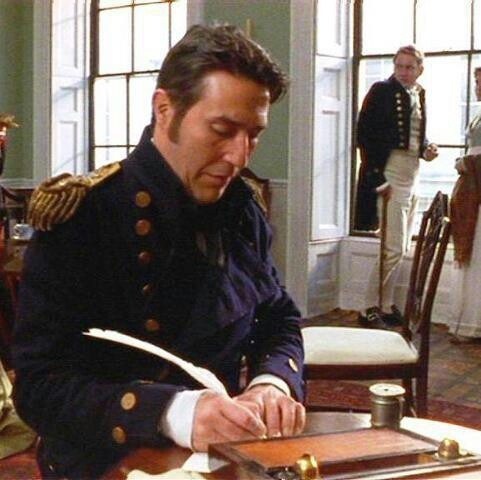
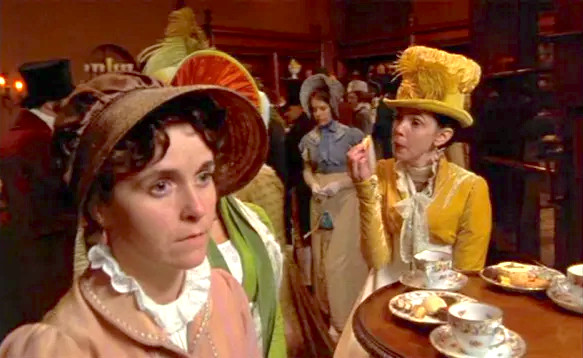

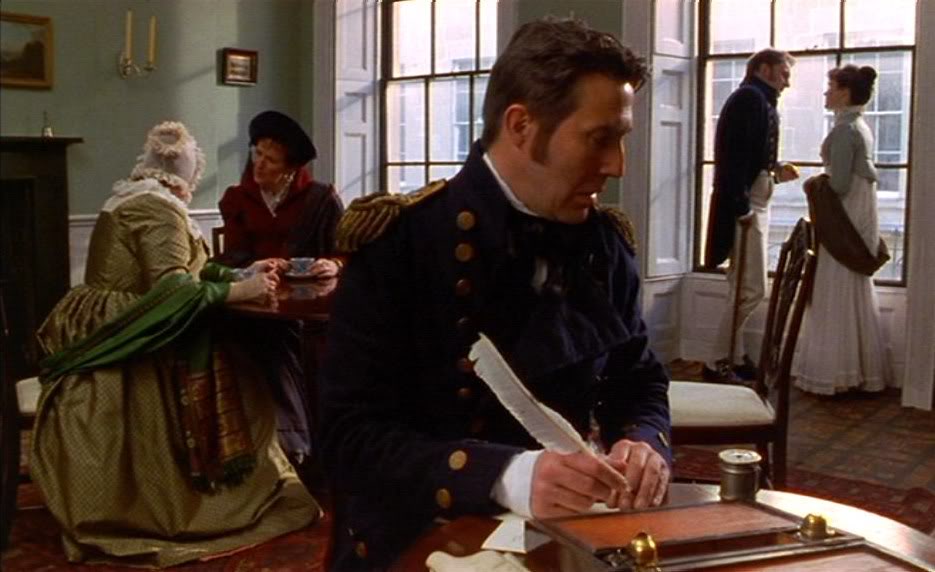
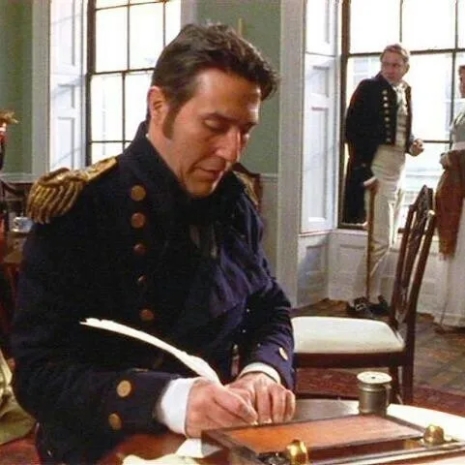
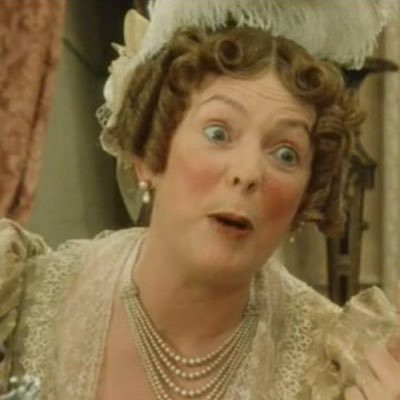
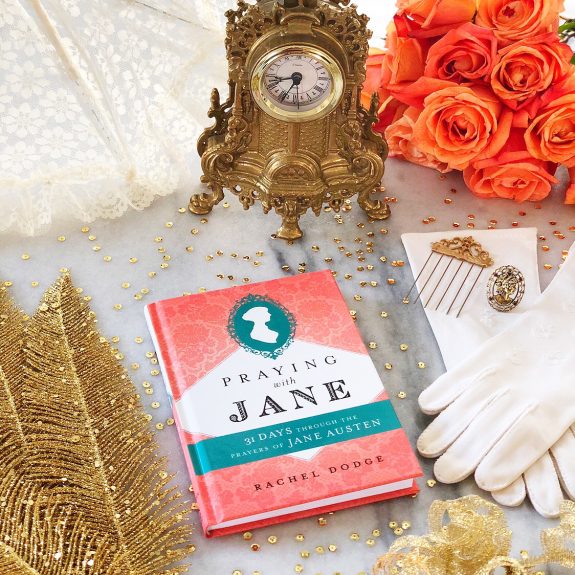






Leave a Reply